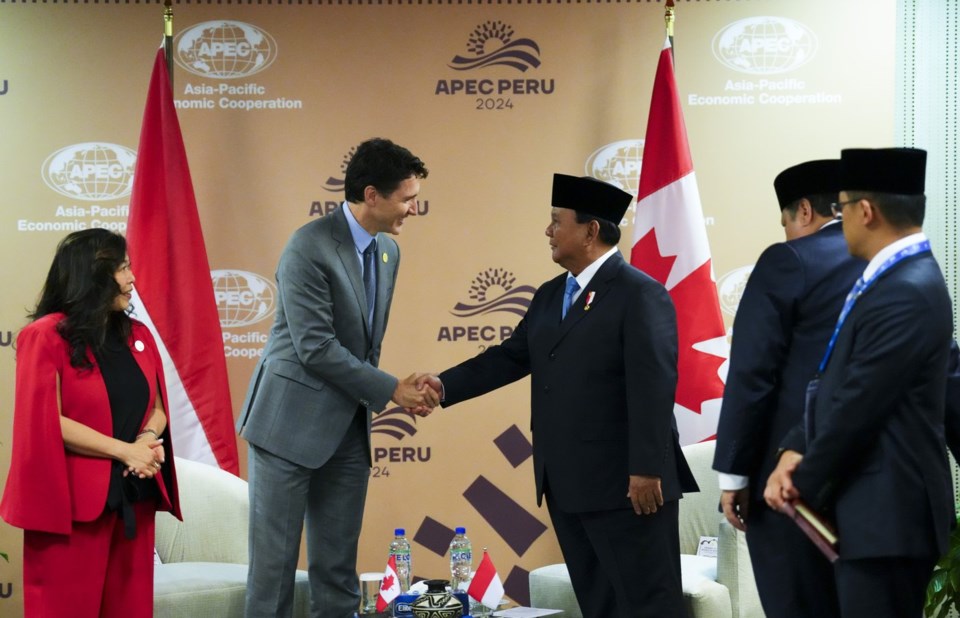Canada and Indonesia Finalize Trade Deal, Eye Nuclear Energy Collaboration
Introduction
Canada and Indonesia have successfully concluded negotiations for a landmark trade agreement, signaling deeper economic ties between the two nations. Announced during the Asia-Pacific Economic Cooperation (APEC) summit in Lima, this deal reflects Canada’s growing focus on the Indo-Pacific region. In addition to trade, Prime Minister Justin Trudeau has proposed a nuclear energy partnership to address rising energy demands, particularly for powering advanced technologies like artificial intelligence (AI).
The Trade Pact and Its Implications
The agreement marks a significant milestone in Canada-Indonesia relations. With a population of over 280 million and a dynamic economy, Indonesia offers vast opportunities for Canadian businesses. The trade deal, set to be signed next year, is expected to enhance digital trade, renewable energy cooperation, and investments in sustainable practices. Indonesian President Prabowo Subianto commended Canada for its partnership in areas ranging from artificial intelligence to sustainable fishing.
The trade pact aligns with Canada’s Indo-Pacific Strategy, which prioritizes strengthening trade relationships to counterbalance China's influence in the region. It also underscores Canada's commitment to multilateralism amid growing global uncertainties.
Nuclear Energy Collaboration
Trudeau emphasized the role of nuclear energy in Southeast Asia's energy transition during the APEC CEO summit. As AI and quantum computing drive energy demand, nuclear power presents a viable solution for clean and efficient energy. Trudeau announced Canada’s "trade gateway" initiative to facilitate nuclear technology knowledge-sharing and market development.
Canada’s nuclear industry is poised to provide products and services to support regional energy needs. Trade Minister Mary Ng noted that peer countries identified nuclear energy as critical for AI-driven sectors, prompting Canada to prioritize this area in its collaboration with Southeast Asia.
Global Context and Challenges
The agreement comes against the backdrop of uncertainty surrounding Donald Trump's potential return to the White House. His past policies, including withdrawing from multilateral agreements, have raised concerns about global trade cooperation. Trump's proposed 10% import tax has also created apprehension among Canada’s trading partners.
Foreign Affairs Minister Mélanie Joly acknowledged Canada’s unique position in adapting to shifting U.S. policies, highlighting its role as a mediator for multilateralism. Joly also confirmed ongoing discussions with U.S. officials to finalize the Columbia River Treaty and navigate shared resource management.
Future Prospects
Canada’s proactive approach to fostering trade and energy partnerships positions it as a key player in the Indo-Pacific region. Strengthening ties with Indonesia and other Southeast Asian nations is part of Canada’s broader strategy to balance global power dynamics and address climate and energy challenges.
As the world grapples with geopolitical shifts, Canada’s efforts to champion sustainable development and innovation in energy will likely set the tone for its future partnerships in the region.
Conclusion
The Canada-Indonesia trade pact and proposed nuclear energy collaboration highlight the growing importance of bilateral cooperation in tackling global challenges. By focusing on trade, clean energy, and multilateralism, both nations are paving the way for a prosperous and sustainable future.
Read More






 Thursday, 05-03-26
Thursday, 05-03-26







